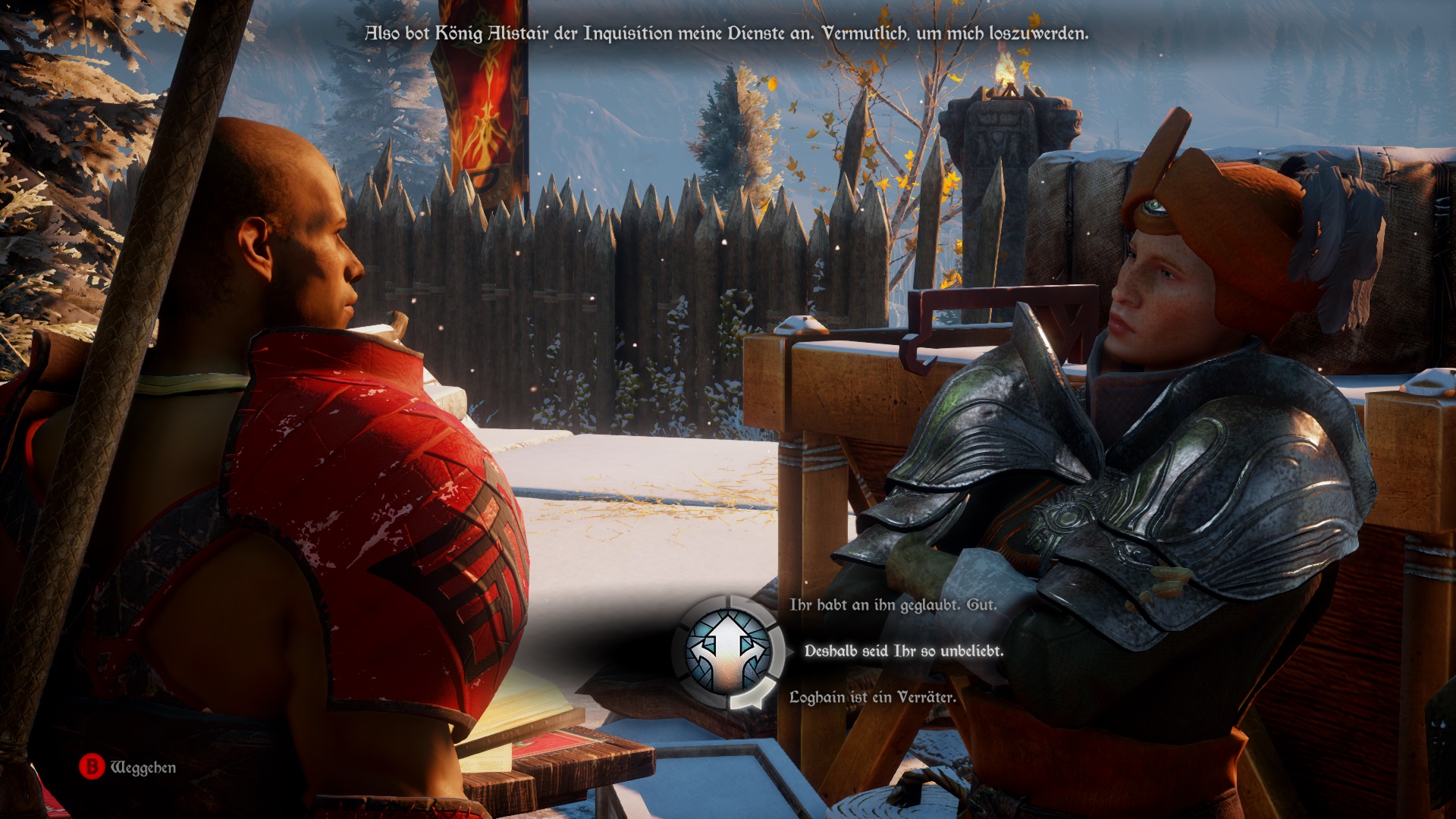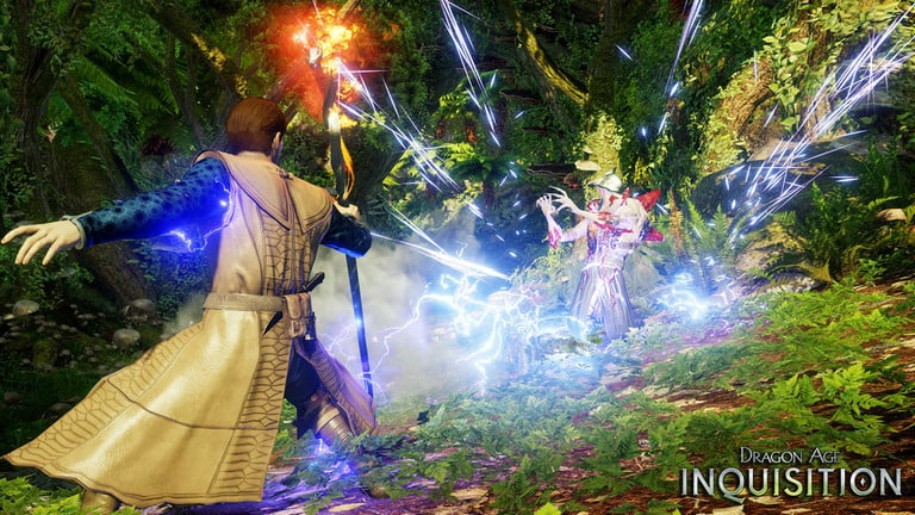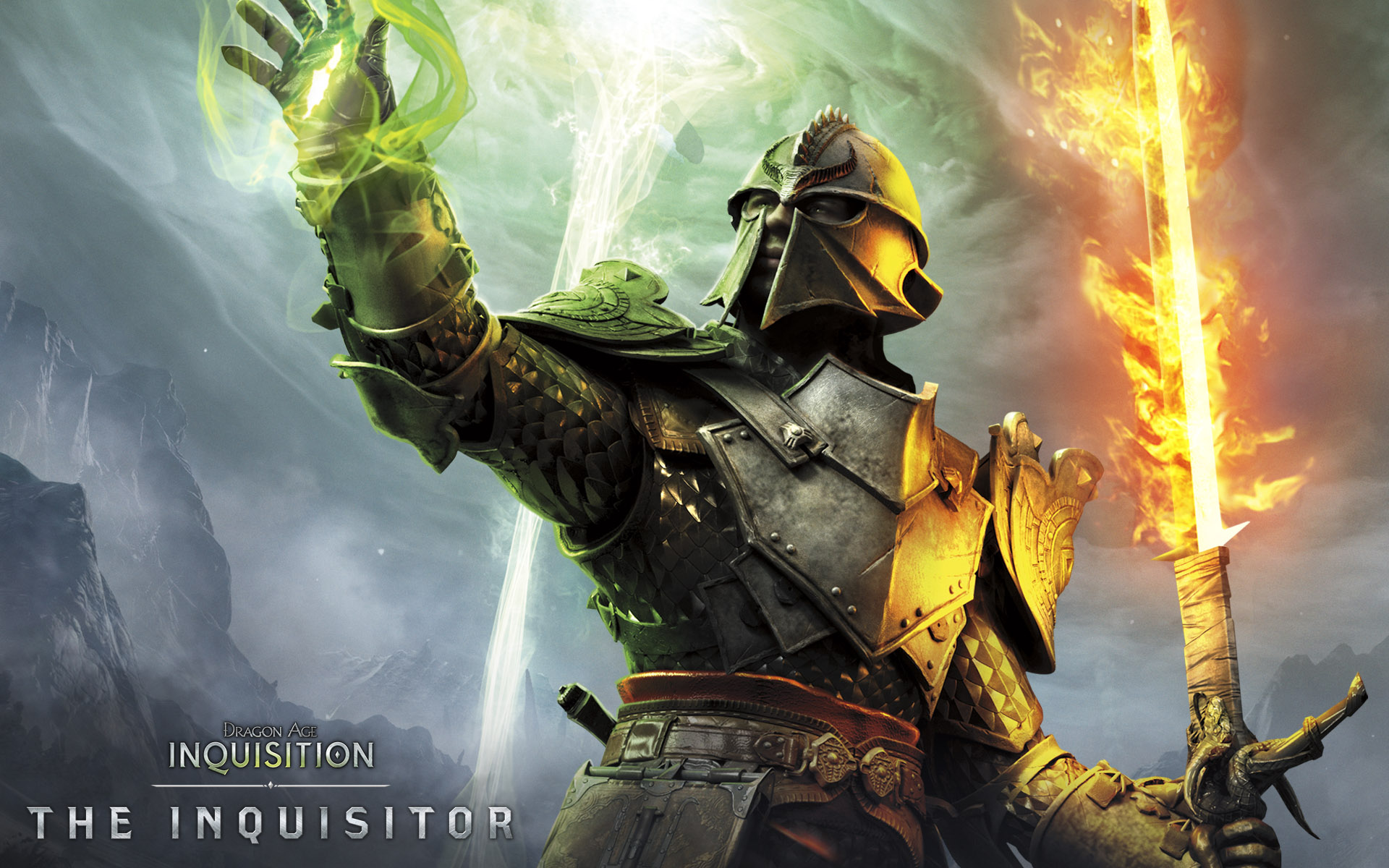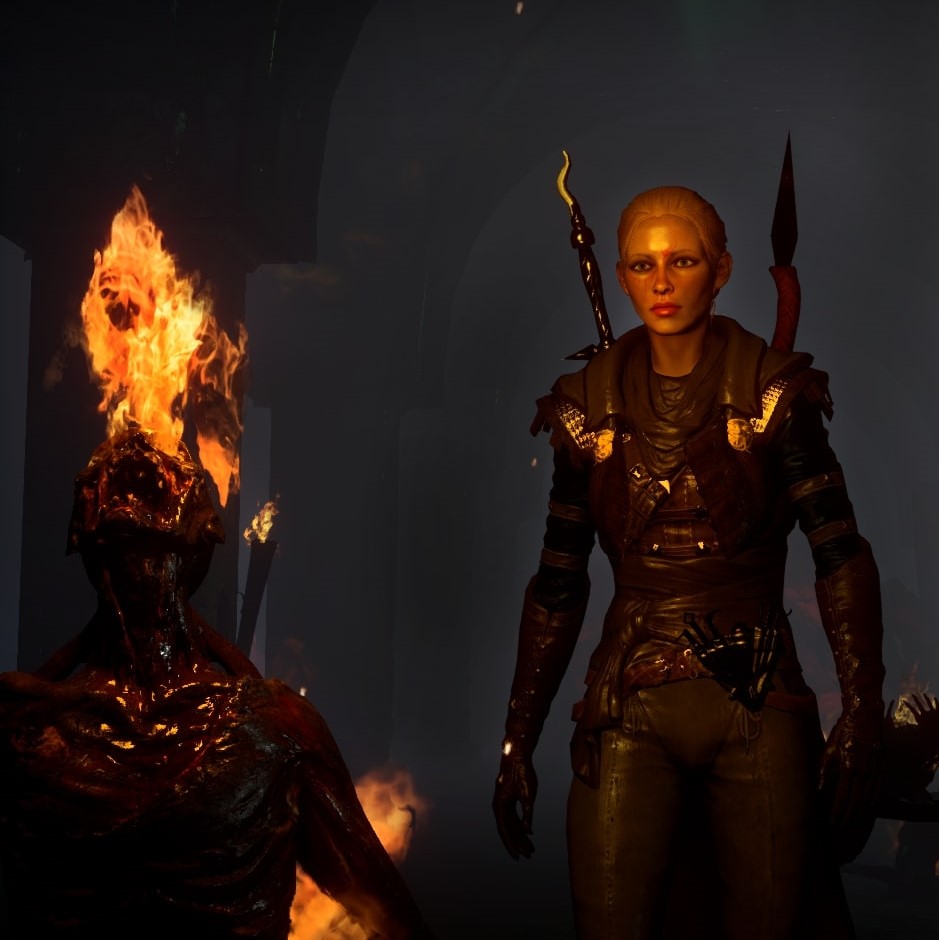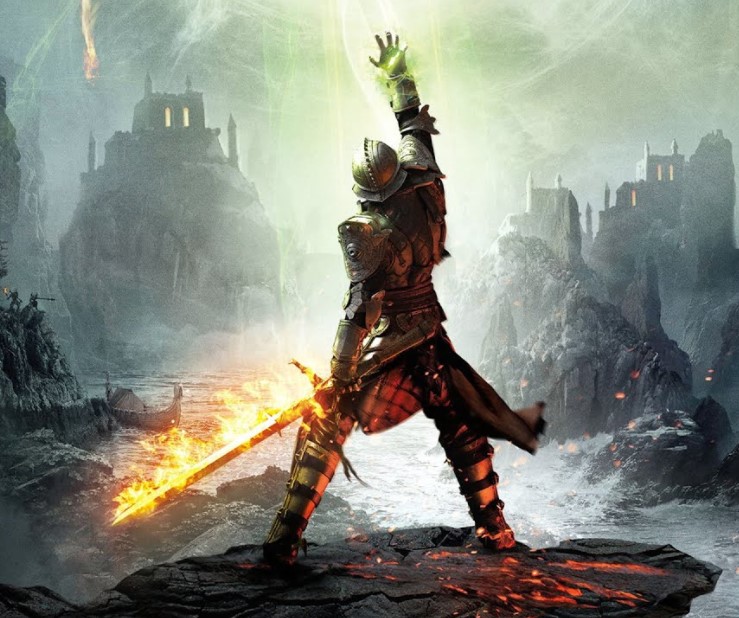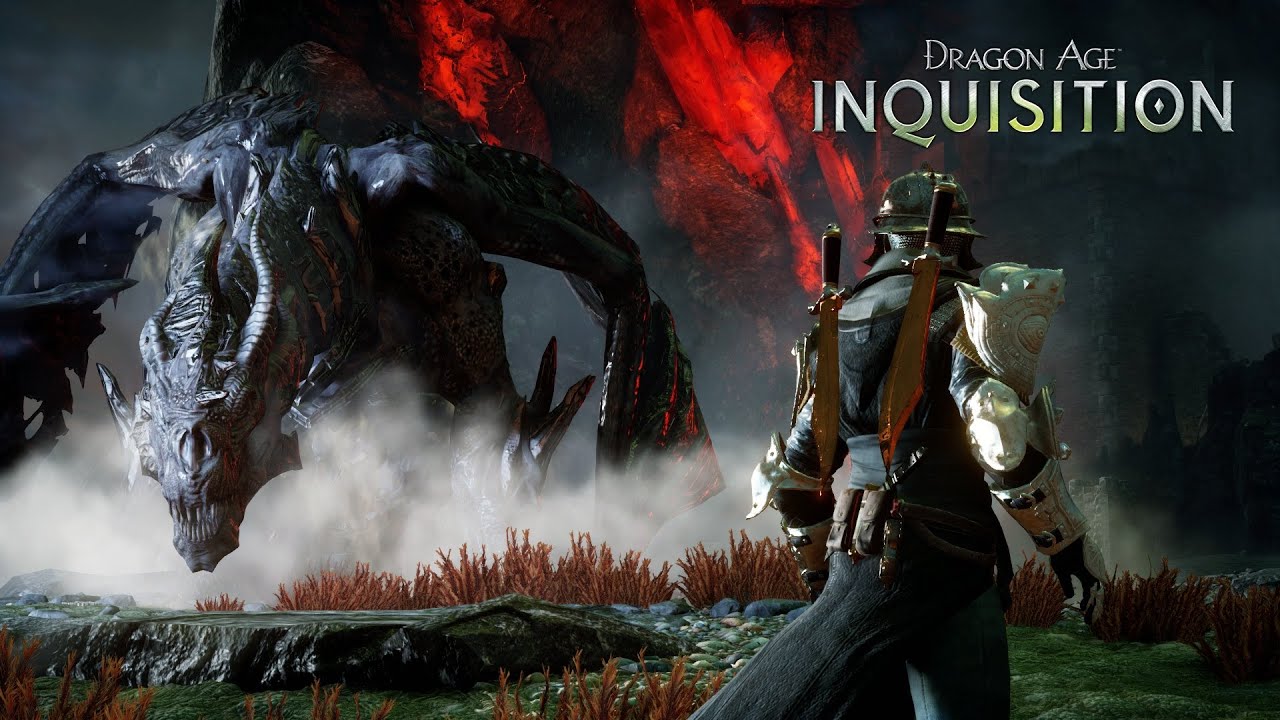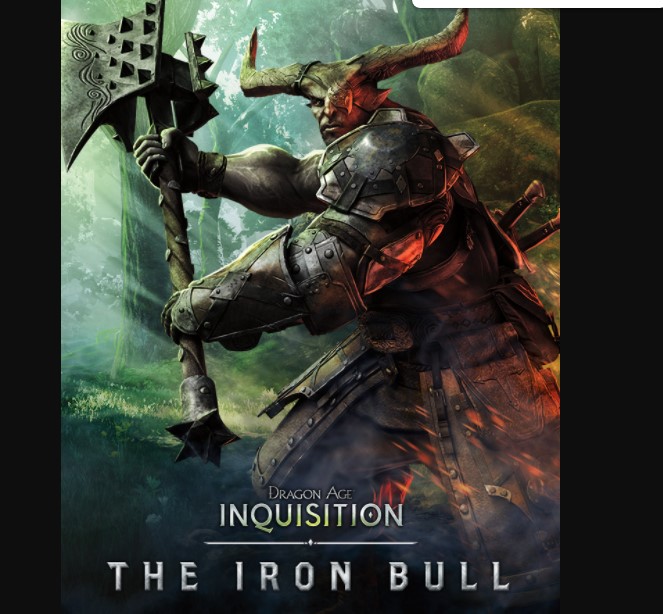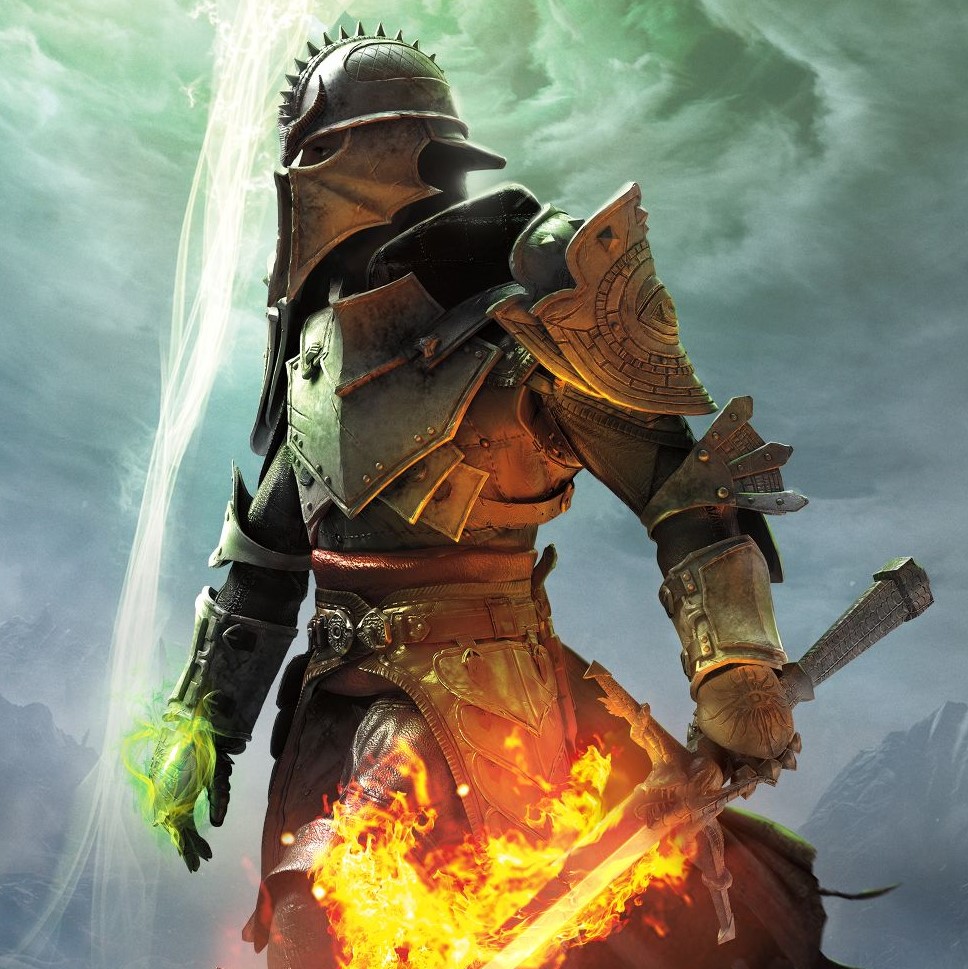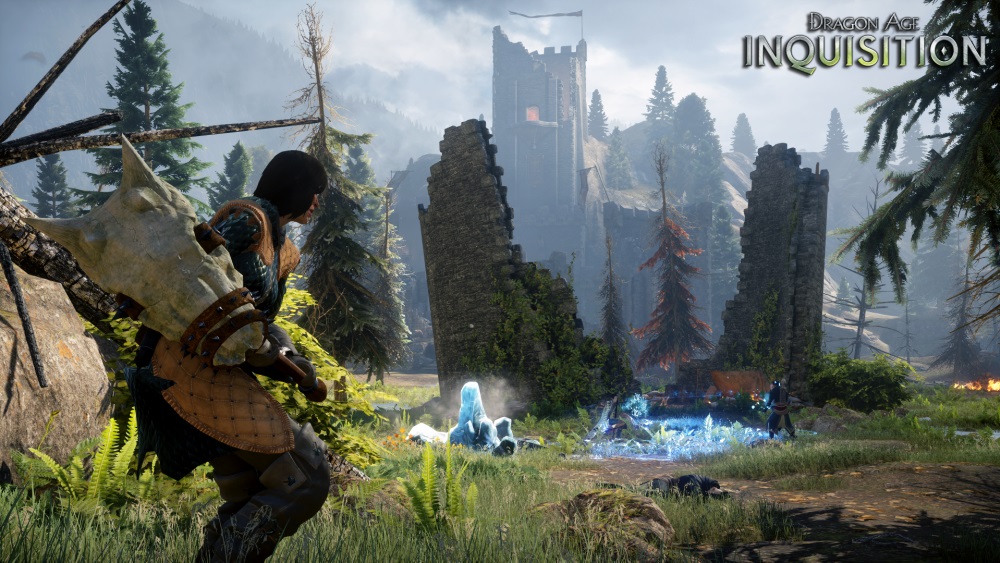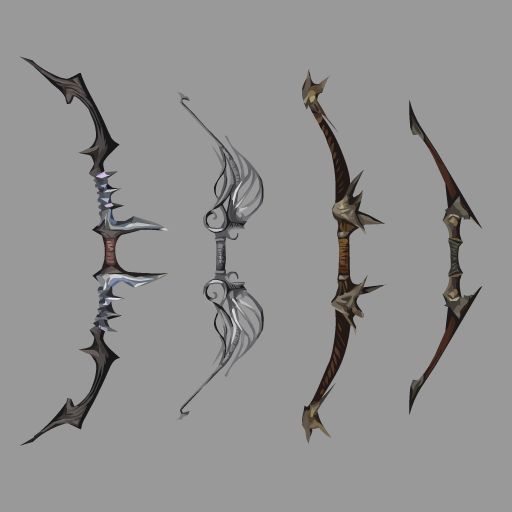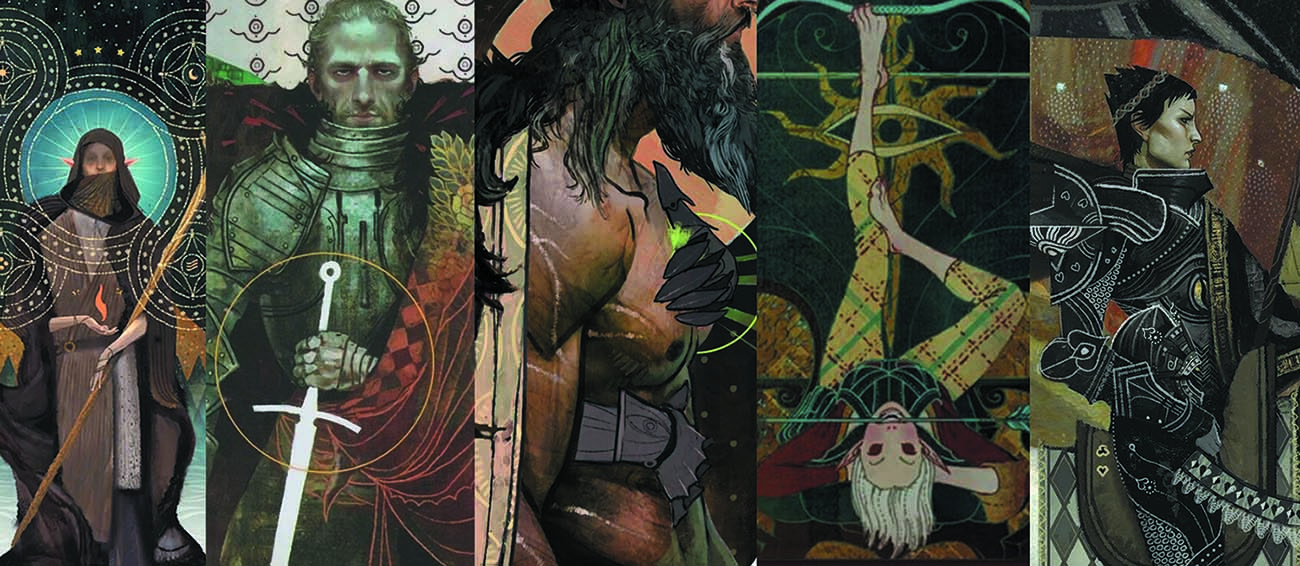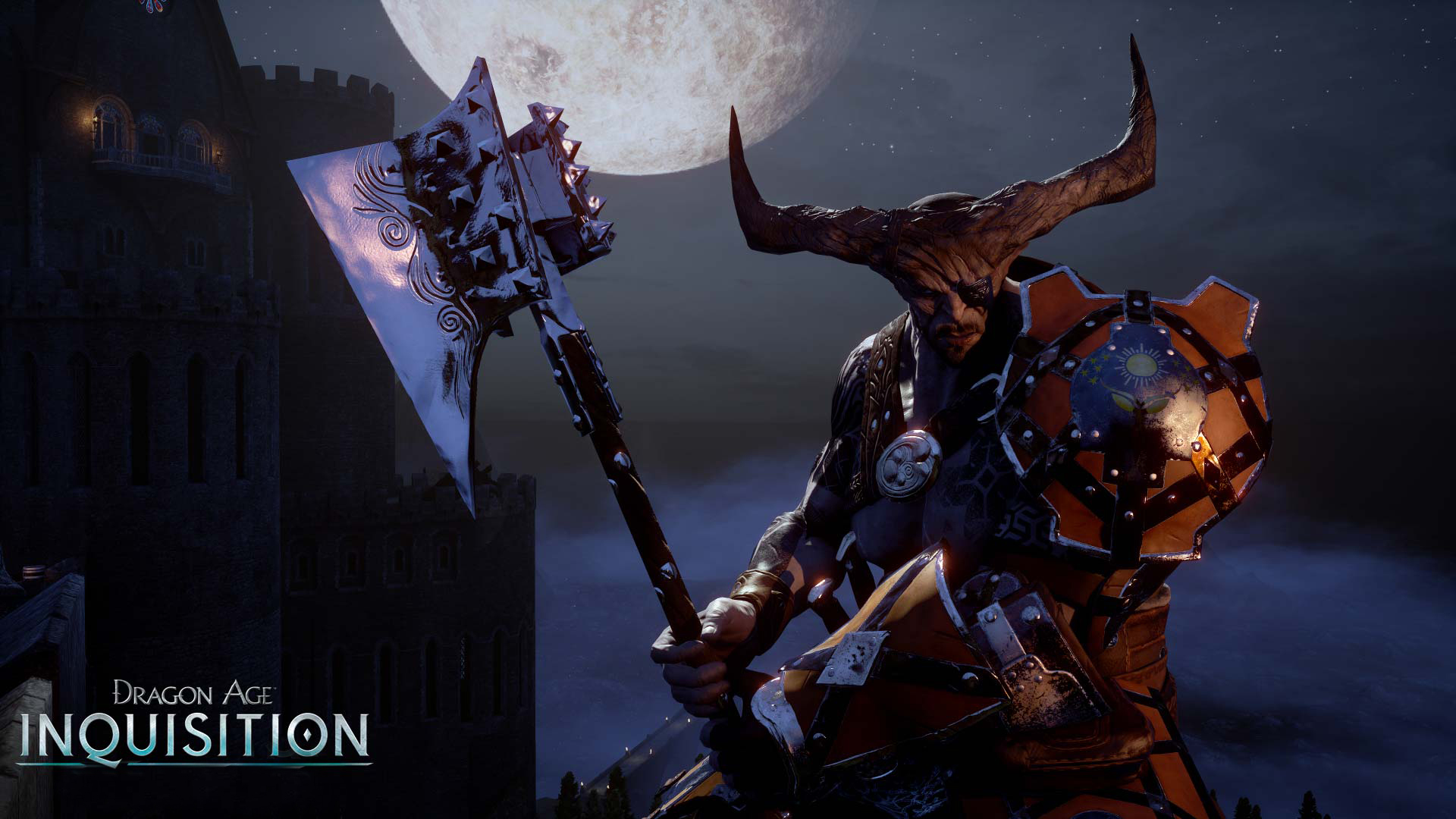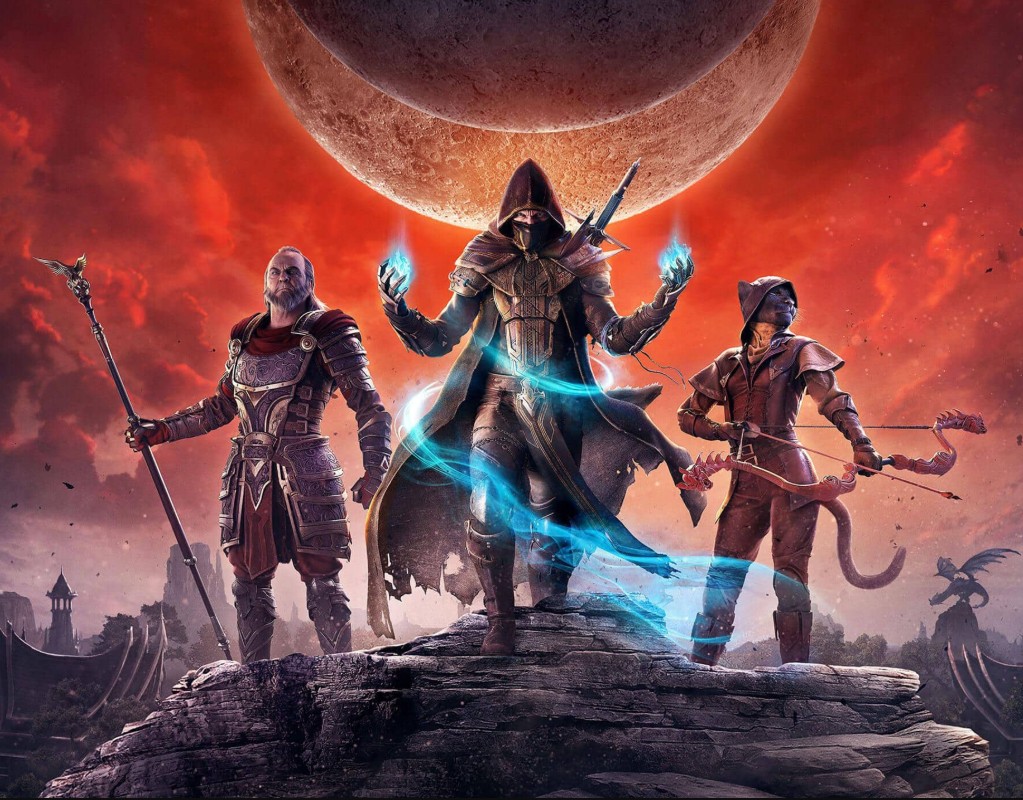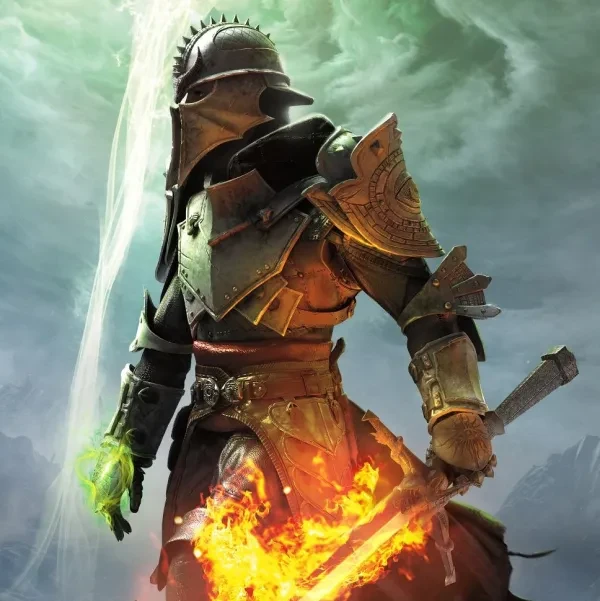
The Dragon Age series challenges players to make narrative decisions, but choosing your character’s class can be just as difficult as crowning a dwarven king. Do you prefer to charge headfirst into battle? Or do you want to sling fireballs from across the Hinterlands?
If you don’t have a preference between the three base classes, it may be best to make your decision based on the followers you want to use in your party. Dragon Age: Inquisition seals many paths behind barriers that only a specific class can unlock, so you will want at least one warrior, rogue, and mage at your disposal.
Warrior
Warriors deliver slower, more powerful attacks that can generate protection for allies and deal sweeping damage to large groups of enemies. They start with the largest amount of HP of the three classes. Warrior players must choose between the defensive Weapon and Shield or aggressive Two-Handed Weapon trees.
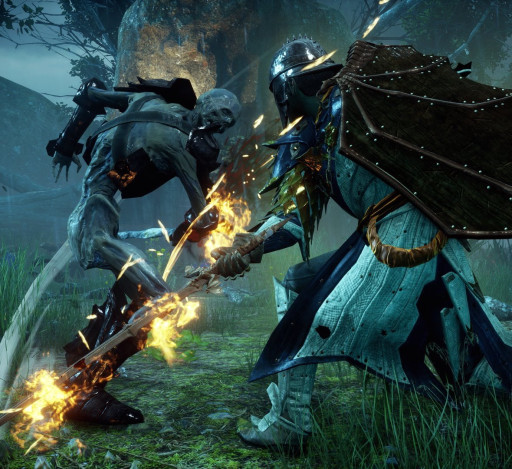
A Weapon and Shield warrior is vital to a strong party, tanking enemy damage and protecting weaker allies.
Both weapon types are able to generate Guard, a new combat mechanic for Inquisition that generates protection without the timed decay of a magical Barrier. Weapon and Shield warriors tend to generate more Guard and tank more damage than their Two-Handed counterparts, but deliver less damage in exchange.
What Warriors Excel In:
- Weapon and Shield Warriors can tank large amounts of damage
- Two-Handed Warriors can damage multiple enemies with heavy attacks
- All warriors have large pools of HP and can use heavy armors
- Warriors hold up best in solo play when your Inquisitor fights alone
Once players complete the quest In Your Heart Shall Burn, warriors will be able to choose one of the three available specializations:
Champion
The Champion specialization pairs well with Weapon and Shield abilities. Most abilities are focused on generating protection and taunting enemies. Pulling attention away from other party members lets higher damage Rogues and elemental Mages deliver devastating attacks unscathed. Blackwall has the Champion specialization.
Reaver
The Reaver specialization is an excellent choice for Two-Handed warriors. The primary feature of Reaver abilities is dealing more damage when the warrior’s health is low, which would be less effective to a more defensive Weapon and Shield player. Players should choose Reaver if they want a more intense, challenging experience. This high risk approach to combat rewards with massive damage, though it requires players to fight dangerously. Iron Bull has the Reaver specialization.
Templar
The Templar specialization is primarily designed to devastate magic users. While this may have been limiting in earlier entries in the series, Dragon Age Inquisition is bursting with demons. Templars can complement both Weapon and Shield and Two-Handed abilities. Their abilities increase damage against demons and suppress the abilities of magic users. Cassandra has the Templar specialization.
You Should Pick a Warrior If:
- You want to charge into battle at the front of the party
- You love to deal large amounts of damage
- You want to engage enemies with direct, aggressive tactics
Rogue
Rogues deliver rapid attacks against enemies, then rely on stealth to disengage. They are the most mobile on the battlefield, diving in and out of action while warriors and mages keep their enemies busy. While a warrior tanks damage, a rogue can slash through each enemy unseen.
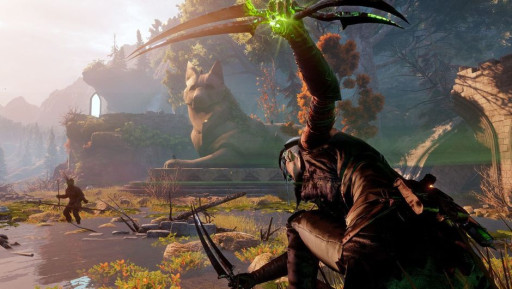
Rogues deal high damage with style. Slipping in and out of stealth boosts critical damage effortlessly.
In Dragon Age: Inquisition, the early game can be more punishing to rogues. Before you build up your combat and mobility skills, rogues will rely more heavily on their party to keep them safe. But by the middle of the game, rogues become nearly overpowered in their damage ability. If you choose a rogue, your patience will pay off.
What Rogues Excel In:
- High mobility on the battlefield
- Fast attacks that can cut enemies down before they can react
- Targeting and devastating individual enemies, one by one
Rogues can choose between Double Daggers or Archery for their weapons. The Dragon Age series has never been friendly to bow users, but Inquisition makes Archery a much more viable choice than in previous entries. Still, it’s hard to compete with the satisfaction of slashing through a crowd with Double Daggers.
When the Inquisition reaches Skyhold after In Your Heart Shall Burn, Rogues must choose between three available specializations:
Artificer
Artificers make use of traps and mines to protect themselves while building distance between themselves and foes. A perfect complement to the Archery tree, the Artificer specialization provides passive abilities that boost party damage while maintaining their distance from the fight. Varric has the Artificer specialization.
Assassin
Assassins heighten the Rogue’s ability to deal high damage and slip into stealth. These abilities boost dexterity and weapon damage, as well as making enemies more vulnerable to attack. Damage is also increased against weakened enemies, and killing a foe can reset stealth cooldowns. Especially in late game, Assassins are extremely effective. Cole has the Assassin specialization.
Tempest
Tempests use flasks to boost damage and defensive stats. These abilities can benefit Double Dagger rogues and their Archery counterparts. One flask boosts mobility, giving archers a critical advantage to maintaining distance from the fight. Sadly flasks can only be used one at a time, but their unique benefits can still provide a tactical edge especially when fighting alone. Sera has the Tempest specialization.
You Should Pick a Rogue if:
- You love fast intense gameplay
- You want to maneuver in and out of battle, targeting enemies and diving in
- You love using stealth to cut down unsuspecting foes
Mage
Many existing tier lists are unfavorable to the mage class, as mages may struggle in solo play compared to self-sufficient warriors and stealthy rogues. But Inquisition mages shouldn’t be dismissed so easily. Mages can use devastating elemental attacks to deal intense damage while buffing their party members. They also have many tools at their disposal to create distance between themselves and their enemies.
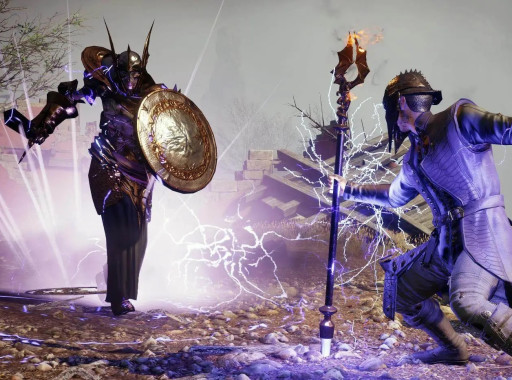
Flashy elemental attacks give mages versatile attacks tailored to each enemy they face.
Rather than two weapon choices, all mages use staves that deploy a base damage type: spirit, fire, cold, and electricity. These four damage types represent the categories of spells you can choose when levelling your Inquisitor: Spirit, Inferno, Storm, and Winter magic.
What Mages Excel In:
- Inflicting elemental damage tailored to specific foes
- Delivering status effects that can be combined with warrior and rogue attacks
- Increasing the effectiveness of companions on the battlefield
Mage Inquisitors have the flexibility to have players explore multiple approaches to combat. Spirit magic is more focused on providing defensive buffs to allies. The other three deal heavier damage with lingering statuses to soften enemies for warriors and rogues to cut down.
After the quest In Your Heart Shall Burn, mages will be able to choose one of the three available specializations:
Knight-Enchanter
The Knight-Enchanter specialization is a favorite of dragon hunters, and for very good reason. These mages wield a spirit blade that can deal massive damage, then degrades after each successive swing. Combined with the Fade Step ability in the Winter tree, Knight-Enchanters are extremely mobile fighters that can attack and escape while dealing massive damage. Knight-Enchanters can also generate protective barriers when dealing damage and other defensive bonuses. Vivienne has the Knight Enchanter specialization.
Rift Mage
Rift Mages use Fade Magic for high damage attacks and moving enemies on the battlefield. Foes can be thrown down with Veilstrike or grouped together with Pull of the Abyss. When combined with area attacks, Rift Magic can create highly impactful combos. Solas has the Rift Mage specialization.
Necromancer
Given the nature of necromancy, choosing the Necromancer specialization earns disapproval among some companions, including Blackwall and Cole. Despite this, only one ability in the tree raises dead enemies. Necromancers primarily deliver damage bonuses and weaken enemies with fear debuffs. Dorian has the Necromancer specialization.
You Should Pick a Mage If:
- You want a deeper level of customization for combat abilities
- You like to keep enemies at a distance
- You want to move between attack types to deal heavier damage to special enemies
You May Also Be Interested In:
- Dragon Age: Inquisition Best Class - What To Pick?
- [Top 10] Dragon Age Inquisition Best Builds
- [Top 10] Dragon Age Inquisition Best Weapons And How To Get Them
- Dragon Age Inquisition Best Race - What To Pick?
- Top 10 Games Like Dragon Age: Inquisition (Games Better than Dragon Age: Inquisition In Their Own Way)
- Dragon Age 4 Release Date and 10 Things We Want to See

